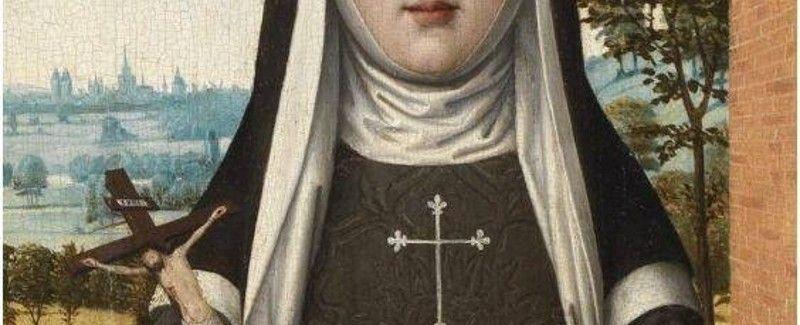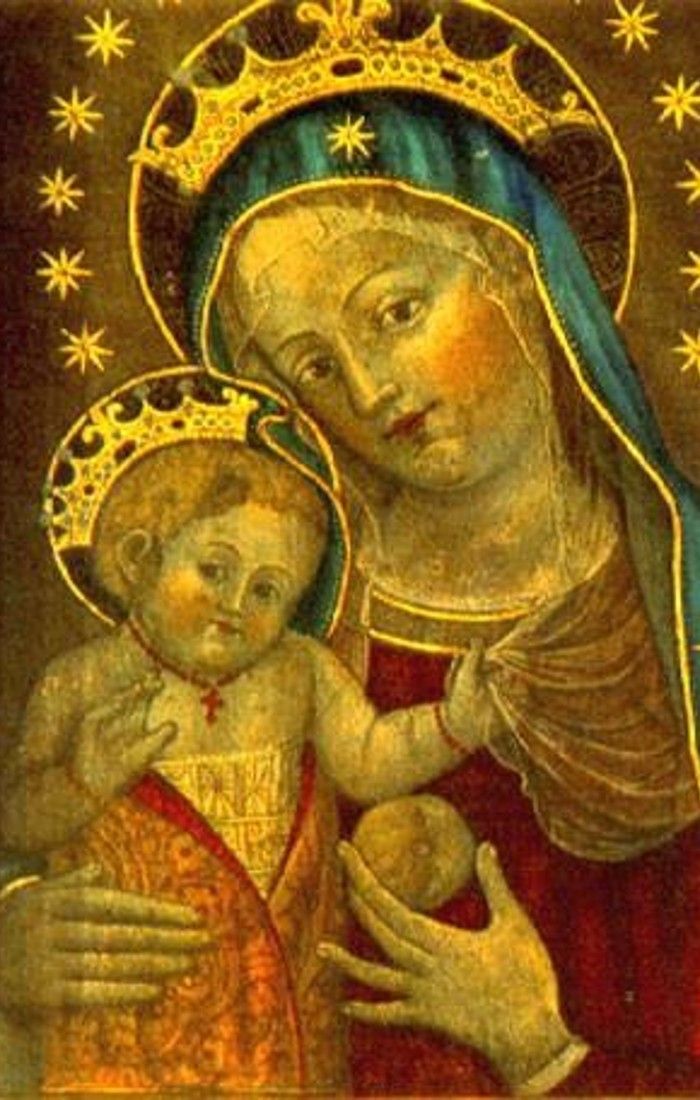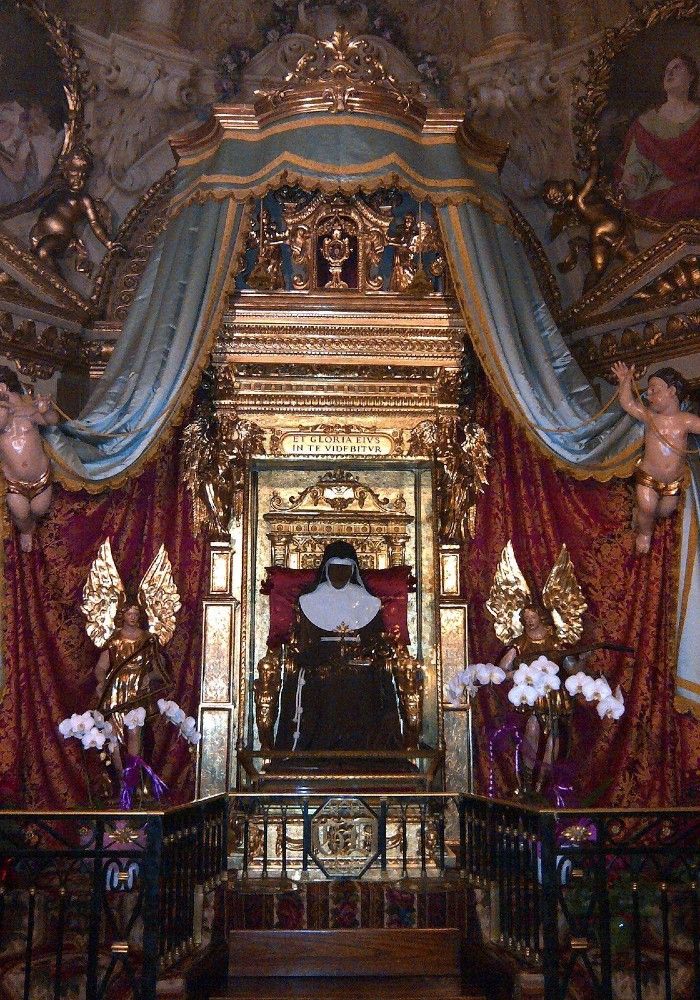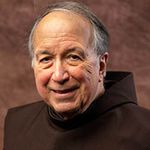Saint Catherine of Bologna: Spiritual Leader, Woman of Arts

On May 9, the Franciscan family celebrates the memory of St. Catherine of Bologna (1413–1463), a Poor Clare celebrated for her devotion and learning.
Excelling in the arts
Caterina Vigri was born into a prominent family of Bologna. Her father brought the family to the city of Ferrera where he served as ambassador. There Catherine was raised at court as a lady-in-waiting. Ferrera was a center of culture at the time, and Catherine received an excellent education in letters, music (she played the viola), and art.

This Madonna and Child is traditionally ascribed to Saint Catherine of Bologna.
Leading others in the Franciscan tradition
When Catherine reached the marriageable age of 14, however, she chose to abandon court life to join the convent of Corpus Domini in Ferrara, a community of laywomen living a religious life without formal vows. Shortly after she entered, the community became divided about the path they should take; Catherine was among those who desired to move the community in a Franciscan direction. Despite her youth, her spiritual maturity led the group to select her as novice mistress. The community ultimately decided to adopt the Rule of St. Clare in 1435.
Writing “The Seven Spiritual Weapons”
Besides serving as novice director, Catherine continued her faithful involvement in the humble daily tasks of community life; she expressed her spirituality through art, music, and writing. She is best known for her treatise, “The Seven Spiritual Weapons,” which Catherine shared with her confessor shortly before her death; part VII of this work tells of her years of spiritual turmoil in the early 1430s.
Founding Corpus Domini monastery
In 1456 Catherine was asked to return to her home city of Bologna to found a monastery there, also called Corpus Domini. Known for her deep union with God and practical wisdom, she died there in 1463, still playing the viola during her last days.

Catherine founded the monastery of Corpus Domini in Bologna.
Leaving a legacy of spiritual richness
Originally Catherine’s remains were buried in a garden of the monastery, but a pleasant odor continued to come from the body, so it was exhumed and found to be incorrupt; her remains were placed in a chapel of her monastery in a seated position, reflecting her role as a spiritual teacher. Her community continued to be a center of spiritual richness for many years, and her remains are still venerated there.

Saint Catherine’s incorrupt remains, in a seated position, can be found in a chapel in her monastery.
Reflecting on “The Seven Spiritual Weapons”
In 2010 Pope Benedict XVI offered a rich reflection on Catherine, including some thoughts on her treatise “The Seven Spiritual Weapons.”
Wisdom of Saint Catherine of Bologna
If you do not push yourself with great effort, you will not be a true spouse of Christ. If, however, you bear suffering for him then you will live in glory with him forever. And the more that you abandon yourself for him, know that in truth you will find him, and you will never be abandoned.
Dominic Monti, OFM
Professor of Franciscan Research in the Franciscan Institute of St. Bonaventure University
Dominic V. Monti, OFM, is a Franciscan Friar of Holy Name Province (USA) and currently professor of Franciscan Research in the Franciscan Institute of St. Bonaventure University. He devoted the greater part of his ministry to teaching the History of Christianity, in particular the history of the Franciscan movement. He has contributed two volumes to the Works of St. Bonaventure series and is author of Francis & His Brothers, a popular history of the Friars Minor.

